According to the working program of the 5th Session, today, June 2, the National Assembly discussed in the hall the draft Law amending and supplementing a number of articles of the Law on People's Public Security.
Specific program today, Friday, June 2, 2023: In the morning, the National Assembly voted to pass the Resolution on the Law and Ordinance Making Program for 2024, adjusting the Law and Ordinance Making Program for 2023; and listened to the Presentation and Verification Report on the draft Law on Telecommunications (amended). Afterwards, the National Assembly discussed in the hall the draft Law amending and supplementing a number of articles of the Law on People's Public Security. In the afternoon, the National Assembly listened to the Presentation and Verification Report on the draft Law on Citizen Identification (amended). Next, the National Assembly discussed in the hall the draft Law amending and supplementing a number of articles of the Law on Exit and Entry of Vietnamese Citizens and the Law on Entry, Exit, Transit and Residence of Foreigners in Vietnam. |
* Yesterday, Thursday, June 1, 2023, the National Assembly continued the 10th working day of the 5th Session at the National Assembly House with plenary sessions in the hall chaired by National Assembly Chairman Vuong Dinh Hue. The session was televised and broadcast live on Vietnam Television, Voice of Vietnam , and Vietnam National Assembly Television.
Morning
Under the direction of Vice Chairman of the National Assembly Nguyen Duc Hai, the National Assembly continued to discuss the additional assessment of the results of the implementation of the socio -economic development plan and the state budget in 2022; the implementation of the socio-economic development plan and the state budget in the first months of 2023; and the policy of investing in additional charter capital for the Vietnam Bank for Agriculture and Rural Development.
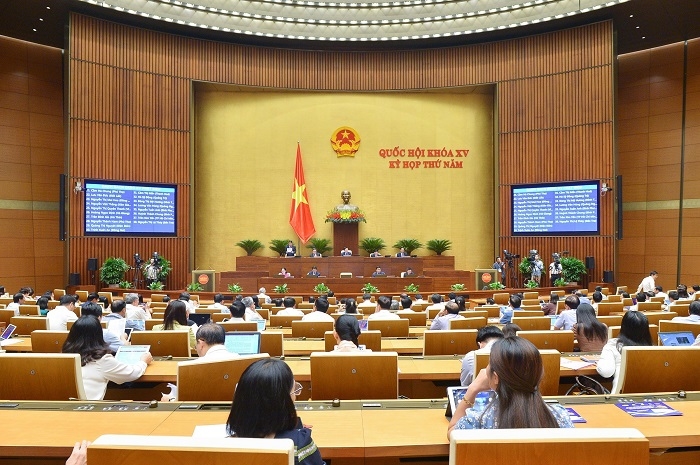 |
| View of the meeting on June 1, 2023. Photo: VPQH |
Delegates focused on discussing: university education and university autonomy; implementation of general education textbook programs; salary increase, administrative reform, decentralization, and delegation of power; human resource development; the situation of enterprises with outstanding debts and evasion of social insurance payments; the withdrawal of one-time social insurance payments from employees; policies and solutions to ensure balance between supply and demand, price stabilization, and support for agriculture, farmers, and rural areas; investment in railway development; policies for ethnic minority and mountainous areas; the implementation of a number of key investment projects in mountainous provinces; preservation, restoration, and promotion of the value of cultural heritage of ethnic groups; planning and approval; electricity for coastal and island areas; reduction of taxes, fees, charges, and other financial obligations for enterprises and people; difficulties and obstacles in fire prevention and fighting; urban development; energy transition; socialization of the vehicle inspection industry, etc.
At the end of the discussion session, Governor of the State Bank of Vietnam Nguyen Thi Hong explained and clarified the issues of high lending interest rates, loosening credit room management; the situation of enterprises having difficulty accessing credit capital; the handling of weak banks and credit institutions; the implementation of the interest rate support package in Resolution No. 43/2022/QH15 of the National Assembly dated January 11, 2022 on fiscal and monetary policies to support the Socio-Economic Recovery and Development Program; some contents related to the VND 120,000 billion loan package to build social housing;
Minister of Finance Ho Duc Phoc explained and clarified a number of issues related to the implementation of fiscal policy combined with monetary and credit policies (including the implementation of support solutions for people and businesses and shortcomings in implementation, VAT refunds and loans for businesses); insurance business activities and inspection, examination and supervision of these activities; the allocation of budget resources at all levels in the implementation of the Expanded Immunization Program; mechanisms for public service units;
Minister of Planning and Investment Nguyen Chi Dung explained and clarified the implementation of solutions and goals to stabilize the macro economy, support businesses, develop the market, attract foreign direct investment, support export development, remove difficulties and obstacles in disbursing public investment capital for national target programs; time and progress of completing the plans.
Concluding the discussion, Vice Chairman of the National Assembly Nguyen Duc Hai stated: During the 1.5 days of discussion, 75 National Assembly deputies spoke, 13 National Assembly deputies participated in the debate, and 6 Ministers participated in giving additional explanations on a number of related issues.
In general, the discussion atmosphere was lively, frank and responsible, with rich, comprehensive and profound opinions, demonstrating the dedication of National Assembly deputies to important issues of the country and issues of concern to the majority of voters. National Assembly deputies highly appreciated the efforts of the entire political system, the entire Party, the entire army, the entire people, the National Assembly, the National Assembly Standing Committee, the Government, sectors and levels, and acknowledged the great contributions of the entire nation, our overseas Vietnamese and international friends to overcome the difficulties and challenges of 2022.
The majority of opinions of National Assembly deputies agreed with many contents stated in the Government's Report and the Verification Report of National Assembly agencies on socio-economic situation, state budget in 2022, the first months of 2023 and the policy of investing additional charter capital for the Vietnam Bank for Agriculture and Rural Development.
Delegates also pointed out the shortcomings and limitations that emerged in the fourth quarter of 2022 and the first months of 2023, and requested to clarify the challenges and prospects of Vietnam's economy in 2023 to orient appropriate macroeconomic management, complete the growth target and socio-economic targets in 2023, restructure the economy, and have positive solutions to improve two important indicators that did not meet the target of 2022, including: Labor productivity and the proportion of processing and manufacturing in industry.
Many delegates said that with the complicated and unpredictable developments in the world and the difficulties in the domestic economy, there will be more challenges than opportunities, so it is necessary to proactively assess the situation correctly and have new, breakthrough and more drastic solutions. Delegates also proposed many solutions to stabilize the macro-economy, control inflation; prevent the decline in growth drivers and growth areas; be more proactive and timely in policy responses; and enhance the effectiveness and efficiency of fiscal and monetary policies.
Delegates also proposed the need to implement solutions to exempt, reduce, extend taxes and fees, and reduce loan interest rates to support production and business; maintain stable and safe development of the credit institution system, the monetary market, real estate, securities, corporate bonds, handle bad debts, handle weak banks, ensure balance of supply and demand, manage appropriate price stabilization, ensure supply and circulation of goods, and balance electricity, coal, and gasoline.
Delegates suggested that the Government should speed up the progress of planning, appraisal, and approval of plans and capital disbursement for socio-economic recovery and development programs, end the slow disbursement of public investment capital; overcome the situation of low revenue estimates; restructure the budget in a sustainable direction, strengthen revenue management, prevent revenue loss and tax evasion to ensure budget balance; urgently propose appropriate solutions and policies for mechanisms when implementing global minimum tax and carbon tax; continue to improve the investment and business environment, reform administrative procedures, enhance the responsibility of leaders, tighten discipline and public service discipline, and overcome the situation of shirking responsibility among a part of the staff and civil servants.
Continue to improve the legal system to create favorable and smooth conditions for production, business, and operations of enterprises and people; thoroughly remove difficulties and obstacles in the mechanisms of public service units; allocate national target programs in purchasing drugs and medical supplies; vehicle inspection; promptly respond to natural disasters, epidemics, and diseases; stabilize employment for workers; provide timely support for unemployed workers, build social housing and policies related to meritorious people and safe zones.
Build and improve the effectiveness of cultural institutions for workers in industrial parks and export processing zones; preserve and promote good cultural values; improve the quality of education and health care; promote the application of science and technology; prevent moral and lifestyle degradation; prevent domestic violence, child abuse and social evils; ensure national defense, security, order and social safety.
Delegates suggested that the Government and the Bank for Agriculture and Rural Development have solutions to strictly manage, effectively use and preserve the additional charter capital. Increase lending to the agricultural and rural sectors, the progress of budget capital allocation must be estimated, comply with the State Budget Law, and assess the impact to ensure the balance of the state budget.
Afternoon
Under the direction of Vice Chairman of the National Assembly Nguyen Duc Hai, the National Assembly discussed: Approval of the 2021 state budget settlement; Thrift practice and anti-waste work in 2022; continued implementation of the 2% value-added tax reduction policy according to Resolution No. 43/2022/QH15 dated January 11, 2022; assignment of the list and capital level for tasks and projects under the Socio-Economic Recovery and Development Program; assignment, adjustment and supplementation of the medium-term public investment plan of central budget capital for the period 2021-2025 and allocation of the central budget capital investment plan in 2023 of the national target program. At the discussion session, 19 delegates spoke, focusing on the following specific contents:
Regarding the approval of the 2021 state budget settlement: Delegates' opinions assessed that the 2021 state budget settlement results are a recognition of the very valuable efforts of the Government, central ministries, branches, localities, and the accompaniment of the entire political system and businesses.
In addition, delegates also pointed out some shortcomings and limitations of this content such as: The allocation of budget estimates is still slow; there is still a large amount of outstanding debt in basic construction and requested the Government to continue to review in detail the amount of expenditure transferred in violation of regulations; properly and strictly implement the State Budget Law; at the same time, there needs to be specific solutions to rectify the situation of slow recovery of advances from the settlement years of 2020 and earlier...
Regarding the work of practicing thrift and fighting waste in 2022: The majority of delegates agreed with the Government's Report and the Finance and Budget Committee's Verification Report on the results of practicing thrift and fighting waste; the assessment of the results clearly demonstrated the initiative and determination of the Government, ministries, branches and localities.
In addition, delegates focused on discussing: waste in allocating public investment capital and slow disbursement of public investment capital; use of capital for target programs for economic and social recovery and development; waste in administrative reform; waste of human resources; waste in slow and delayed issuance of legal documents...
Regarding the continued implementation of the 2% value-added tax reduction policy according to Resolution No. 43/2022/QH15 dated January 11, 2022: Many delegates agreed with the continued implementation of the 2% value-added tax reduction policy to remove difficulties, unlock resources, and promote socio-economic development in the context of the economy facing many current challenges.
In addition, delegates also suggested that it is necessary to carefully re-evaluate the implementation time for the policy to take effect and achieve the set goals; review and consider expanding the scope of subjects eligible for VAT reduction; and study some more policies to support businesses. Some delegates suggested extending the 2% VAT reduction policy until the end of 2025 or at least until the end of 2024; at the same time, promptly and promptly provide guidance on VAT refund application files, contributing to removing difficulties for people and businesses.
Regarding the assignment of the list and capital level for tasks and projects under the Socio-Economic Recovery and Development Program; assignment, adjustment and supplementation of the medium-term public investment plan of central budget capital for the period 2021-2025 and allocation of the central budget capital investment plan in 2023 of the national target program: The delegates' opinions basically agreed to submit to the National Assembly for consideration and decision on capital allocation of the medium-term public investment plan for the period 2021-2025 and capital of the Socio-Economic Recovery and Development Program according to Resolution 43, these are programs and projects that contribute to the socio-economic development of the country, ensuring national defense and security; in addition, the delegates also contributed opinions on a number of specific projects.
At the end of the discussion session, Minister of Industry and Trade Nguyen Hong Dien; Minister of Planning and Investment Nguyen Chi Dung; and Minister of Finance Ho Duc Phoc explained and clarified a number of issues of concern to National Assembly deputies.
HAI THANH
Source








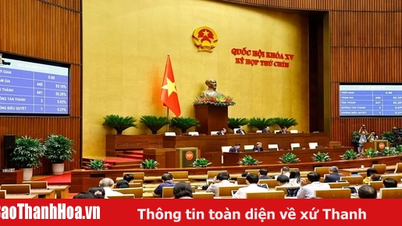

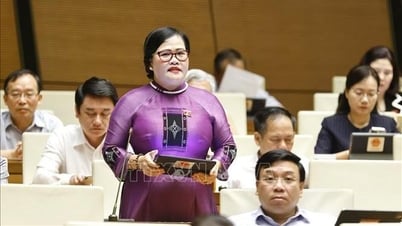

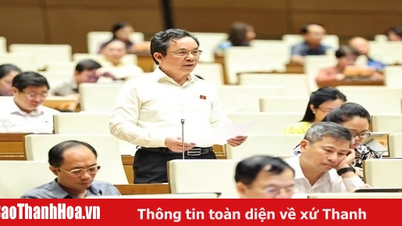
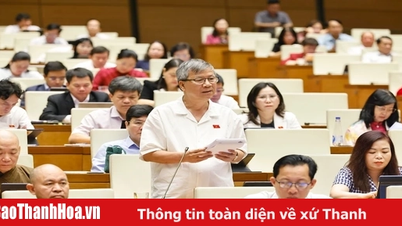







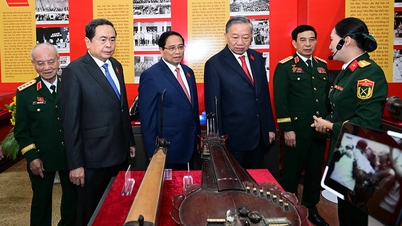


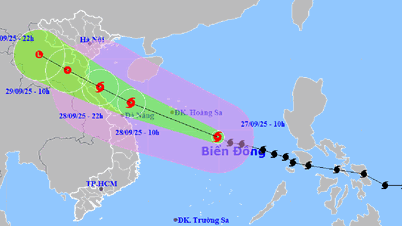




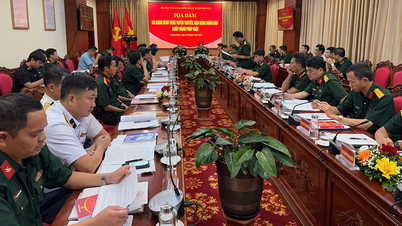

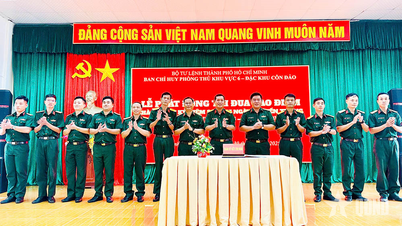
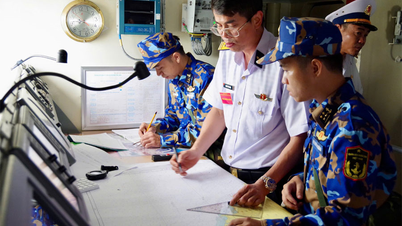


![[Photo] President Luong Cuong receives President of the Cuban National Assembly Esteban Lazo Hernandez](https://vphoto.vietnam.vn/thumb/1200x675/vietnam/resource/IMAGE/2025/9/30/4d38932911c24f6ea1936252bd5427fa)
![[Photo] Panorama of the cable-stayed bridge, the final bottleneck of the Ben Luc-Long Thanh expressway](https://vphoto.vietnam.vn/thumb/1200x675/vietnam/resource/IMAGE/2025/9/30/391fdf21025541d6b2f092e49a17243f)
![[Photo] The 1st Congress of Phu Tho Provincial Party Committee, term 2025-2030](https://vphoto.vietnam.vn/thumb/1200x675/vietnam/resource/IMAGE/2025/9/30/1507da06216649bba8a1ce6251816820)
![[Photo] Solemn opening of the 12th Military Party Congress for the 2025-2030 term](https://vphoto.vietnam.vn/thumb/1200x675/vietnam/resource/IMAGE/2025/9/30/2cd383b3130d41a1a4b5ace0d5eb989d)






















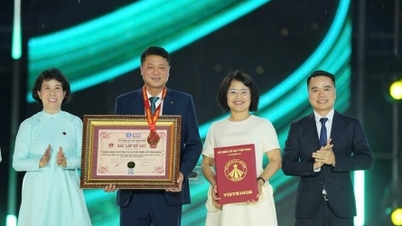
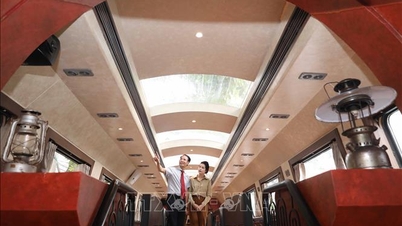
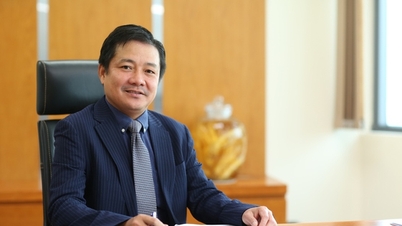

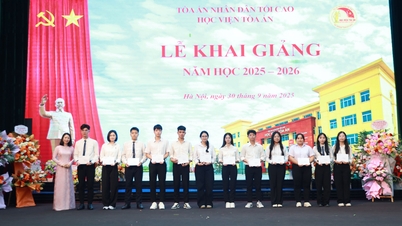
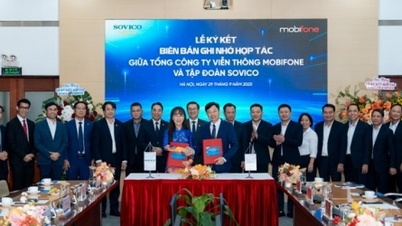



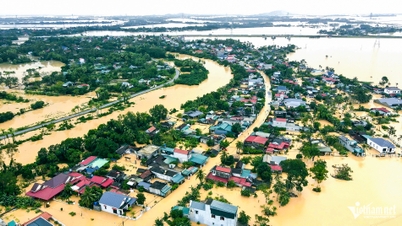

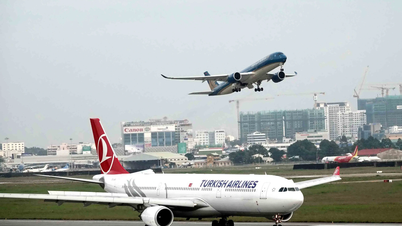
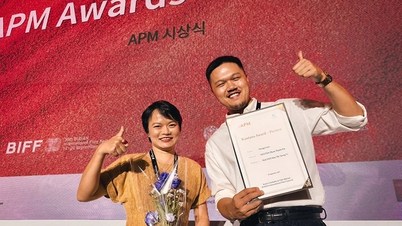







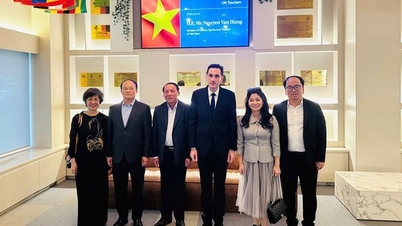
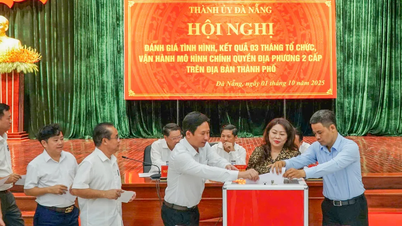





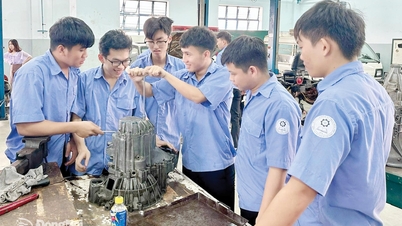

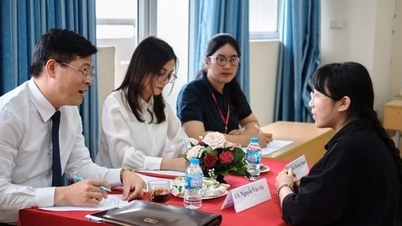

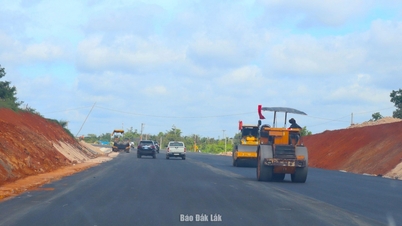













Comment (0)